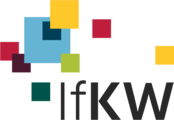
„KI-Expertin: ChatGPT auszuprobieren heißt, es zu entzaubern“ - In an article of the Braunschweiger Zeitung, Dr. Esther Greussing talks about the subject of artifical intelligence. In the interview, she comments on dealing with AI-controlled voice programs such as ChatGPT and advises to test them reflectively.
At: braunschweiger-zeitung.de, 05/16/2023.
„Das Geheimnis hinter dem TikTok-Hype“ - In an article of the Braunschweiger Zeitung, Prof. Dr. Monika Taddicken talks about social media from a scientific perspective. She explains to what extent social networks are a relevant part of the everyday life and what makes TikTok so popular.
At: braunschweiger-zeitung.de, 09/17/2022.
„Braunschweiger zeigen Vielfalt der Podcast-Welt auf“ - In an article of the Braunschweiger Zeitung, Nicola Peters explains what is so special about podcasts and why they are popular among 14 to 49 year olds in particular.
At: braunschweiger-zeitung.de, 02/12/2022.
„Im Check: Wie treten unsere Bundestagskandidaten im Netz auf?“ - In an article in the Braunschweiger Zeitung, Kaija Biermann analyses the online presence of six politicians from the region during the current Bundestag elections. In the article, she explains the relevance of the digital election campaign and which factors are important.
At: braunschweiger-zeitung.de, 09/22/2021.
„Schwindet das Vertrauen in Wissenschaft?“ - Dr. Anne Reif explains the research focus and objectives of the new DFG-funded research project ‘The relationship of trust between science and digitised publics’ (TruSDi) in cooperation with the University of Hamburg and Bielefeld in the TU Braunschweig magazine.
At: magazin.tu-braunschweig.de, 08/12/2021.
„Wissenschaftskommunikation in Pandemien“ - Prof. Dr. Monika Taddicken presents the scientific project and the objectives of the DFG-funded research project "Science communication in pandemics: The role of public participation in social media discussions" (SCan) in cooperation with the University of Duisburg-Essen.
At: magazin.tu-braunschweig.de, 06/22/2021.
„Ein Jahr Kampf gegen Corona“- Prof. Dr. Monika Taddicken comments on the information behaviour of the population and criticism of media coverage during the ongoing Covid-19 pandemic in the NDR Info Talk.
At: ndr.de, 01/27/2021.
„Wem wir vertrauen, wenn es um Wissenschaft geht?“ - Dr. Anne Reif explains the most important results of the research project “Trustworthiness of experts in online videos” in an interview with Wissenschaftskommunikation.
At: sciencecommunication.com, 01/05/2021.
„So gelingen Gespräche über den Klimawandel“ - In an interview with Quarks, Prof. Dr. Monika Taddicken formulates helpful suggestions for countering indifference and other difficulties in conversations about climate change.
At: quarks.de, 12/23/2020.
„Professorin: Corona-Regeln aus verschiedenen Blickwinkeln erklären“ - Prof. Dr. Monika Taddicken talks about the current developments in the corona pandemic in an interview with the Evangelische Pressedienst and opens up different perspectives on the rules and measures.
At: kirche-oldenburg.de & christusnews.de, 10/11/2020.
„Fridays for Future – Mit Demos ‚zurück in die Öffentlichkeit‘“ - Prof. Dr. Monika Taddicken and Dr. Anne Reif comment in an interview with ZDF for a report on zdf.de about the journalistic coverage of the Fridays for Future debate during the Covid-19 pandemic.
At: zdf.de, 09/25/2020.
Make Your School: Remote-Hackdays am Gymnasium - heise.online provides an insight into the implementation of the Make Your School initiative's remote hackdays during the coronavirus pandemic. Make Your School is being scientifically supported as part of Francine Meyer's doctoral project.
At: heise.online, 07/10/2020.
Medienkompetenz zu Hause - Was verändert sich während der Corona-Krise? - In a guest post on the blog of the Georg Eckert Institute - Leibniz Institute for International Textbook Research, Francine Meyer reports on aspects of media literacy during the coronavirus pandemic.
At: The Basement, 05/26/2020.
Fünf Gründe warum Corona Verschwörungstheorien befeuert - Prof. Dr. Monika Taddicken explains the connections between corona and conspiracy theories in an interview with ZDF for the programme zdf heute.
On: zdf heute, 05/15/2020.
Forschende auf Youtube und im TV - The portal Wissenschaftskommunikation.de discusses two studies from the special issue ‘Emotions and Emotional Appeals in Science Communication’ by the editors Prof. Dr. Monika Taddicken and Dr. Anne Reif.
At: Wissenschaftskommunikation.de, 04/21/2020.
Falschmeldungen in Zeiten von Corona- Was tun gegen Fake News im Netz? -Prof. Dr. Monika Taddicken talks to the TU Braunschweig magazine about dealing with the flood of information on Covid-19 online.
At: Magazine of the TU Braunschweig, 03/31/2020.
Datenvisualisierung vom Publikum her denken - Dr. Esther Greussing in an article about the pitfalls and opportunities of visual journalism.
In: Medienwoche, 11/05/2019.
Klimawandel und Desinformation - Prof. Dr. Monika Taddicken and Laura Wolff discovered in mid-2018 in a teaching research project at the TU Braunschweig how important the individual handling of contradictory information is for the stability of problem awareness.
At: People make media, 07/08/2019.
Grenzwertig - wie Wissenschaft Politik macht - Prof. Dr. Monika Taddicken - in a radio interview on hr2 in the programme Der Tag about the particulate matter debate, the role of science in political decision-making processes and transparency in science communication.
At: hr2 Der Tag, 01/30/2019.
Technologieforum: Austausch von Wissenschaft und Wirtschaft - Prof. Dr. Monika Taddicken talks to representatives from science and industry at the Braunschweig Technology Forum about science communication and the challenge of bringing science to the masses.
In: Braunschweiger Zeitung, 11/29/2018.
In Braunschweig machen 48 Prozent der Schüler Abitur. In Cloppenburg 18 Prozent. Wie kann das sein? - Prof. Dr. Monika Taddicken talks to Bastian Berber and Henning Sußenbach (ZEIT) about the demands of studying and the reasons for a lack of participation on the part of the student body.
In: Die Zeit, 03/15/2018.
Wie gelingen bessere Diskussionen im Internet? - Prof. Dr. Monika Taddicken discusses the issue of anonymity in the comments section of media portals in the BZ readers' forum.
In: Braunschweiger Zeitung, 11/21/2017.